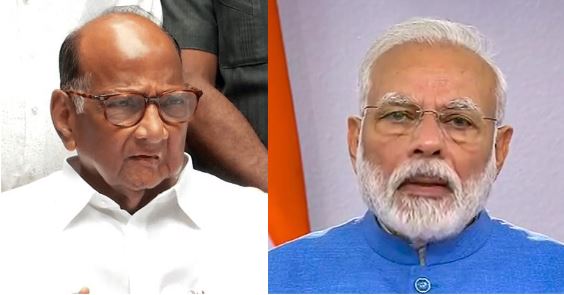The Union government, in an order dated June 27, amended the Banking Regulation Act, 1949, bringing thousands of urban cooperative banks under the direct regulatory ambit of Reserve Bank of India. So far, these banks were under dual authority with the power to appoint or change the management with the board and other regulatory functions lying with RBI.
After the government order, 1,482 urban cooperative banks and 58 multi-state cooperative banks would be under the direct supervision of RBI. However, as per a report by Moneylife, “The ordinance does not include primary cooperative societies, the principal constituents of the state cooperative banks (StCB) and district cooperative central banks (DCCBs)”, probably because it would not be possible for RBI to look after such a large number of entities and they are already well regulated by NABARD.
As UCBs come under the regulatory ambit of RBI, parties like NCP, YSRCP, TDP, and Congress would feel the heat. Maharashtra, Gujarat, and Andhra Pradesh have a large number of UCBs, with some of those having annual revenue in thousands of crores.
Local politicians are involved in the management of these banks and every year fraud worth thousands of crores is revealed in these banks. In Maharashtra, NCP which was in power for years put a state guarantee on loans given by these banks. This means the local NCP politicians who controlled the management of these banks would get loans worth crores from these banks and would not pay back.
If the bank collapses, depositors, whose money accounts for the majority of capital with these banks, would suffer. When things blew out of proportion, the state government would come to rescue these banks and return depositors money using state resources. The politicians, who deliberately do not pay back the loans, are safe in any case.
The NCP built its political empire around sugar co-operative societies and co-operative banks which were complementary to each other. The Fadnavis government ended the state guarantee on the loans provided by UCBs, but when the tri-party alliance came to power, it was again enacted at the behest of NCP. Also, the Fadnavis government had passed the ordinance in January 2016 to ban the directors of the cooperative banks which faced financial irregularities from contesting elections for two terms. This step effectively eliminated many NCP and Congress leaders from the electoral competition. But the party was strengthening its standing in UCBs once again until union government’s move put a break on all its ambitions.
“The ordinance is, indeed, a very positive move; but is it only a part of political gamesmanship or will lead to a clean-up and reduce political control over cooperative banks?” says Sucheta Dalal, veteran financial journalist who exposed many UCB frauds.
Previously, Sharad Pawar had been booked by the Enforcement Directorate (ED) in 25,000 crore rupees money laundering case in September last year. ED registered a case against Sharad Pawar, his nephew Ajit Pawar and 70 other officials under Prevention of Money Laundering Act (PMLA).
The members of Pawar family, and many other leaders of Congress NCP, the coalition which ruled the state for one and a half decades, were involved in 25,000 crore rupees Maharashtra State Co-operative (MSC) Bank scam case.
The MSC bank gave loans to office bearers and directors of local co-operative sugar factories (CSFs) between 2001 and 2011, and this led to 25,000 crore rupees scam. The loans were sanctioned fraudulently, and there was a conflict of interest in sanctioning them.
The directors sanctioned loans to CSFs on the basis of political connections of the people who controlled them. Many CSFs were in a very bad financial position with negative net worth and no collateral, but loans were ‘awarded’ to these companies as they were backed by directors of MSF.
The 48 directors of MSC bank included prominent elected officials from various political parties. Ajit Pawar, nephew of Sharad Pawar and the then Deputy Chief Minister of the State, Dilip Deshmukh, brother of former CM Vilasrao Deshmukh are among the prominent faces who were directors at MSC bank. Some other political faces include Isharlal Jain, Jayant Patil, Shivaji Rao Nalvade, Rajendra Shingane and Madan Patil.
The CSFs turned sick and the directors of MSF gained control of these units. The sick units were sold at throwaway prices to the people with political connections, and this led to a huge loss of MSF Bank but the directors made huge money on both fronts. They benefitted from fraudulent loans and got kickbacks from the purchasers of sick units.
The Pawar family is the best example of how politicians use public offices to reap economic dividends. Sharad Pawar built the political and business empire by influencing the agriculture and related industries through policy manipulation. The cooperative banks, sugar mills, agriculture market produce committee (APMC) were the instruments for Sharad Pawar to build the power base the politics of the state.
With the latest amendment in Banking Regulation Act, Modi government has broken one pillar of Pawar’s empire, and when RBI opens up books of UCBs, many members of Pawar family might land up in jail. Other regional parties in the states like Andhra Pradesh, Haryana, and Congress and BJP politicians in Maharashtra and Gujarat respectively, who squeezed co-operative banks for financial and political gains, would also be under the scanner.
